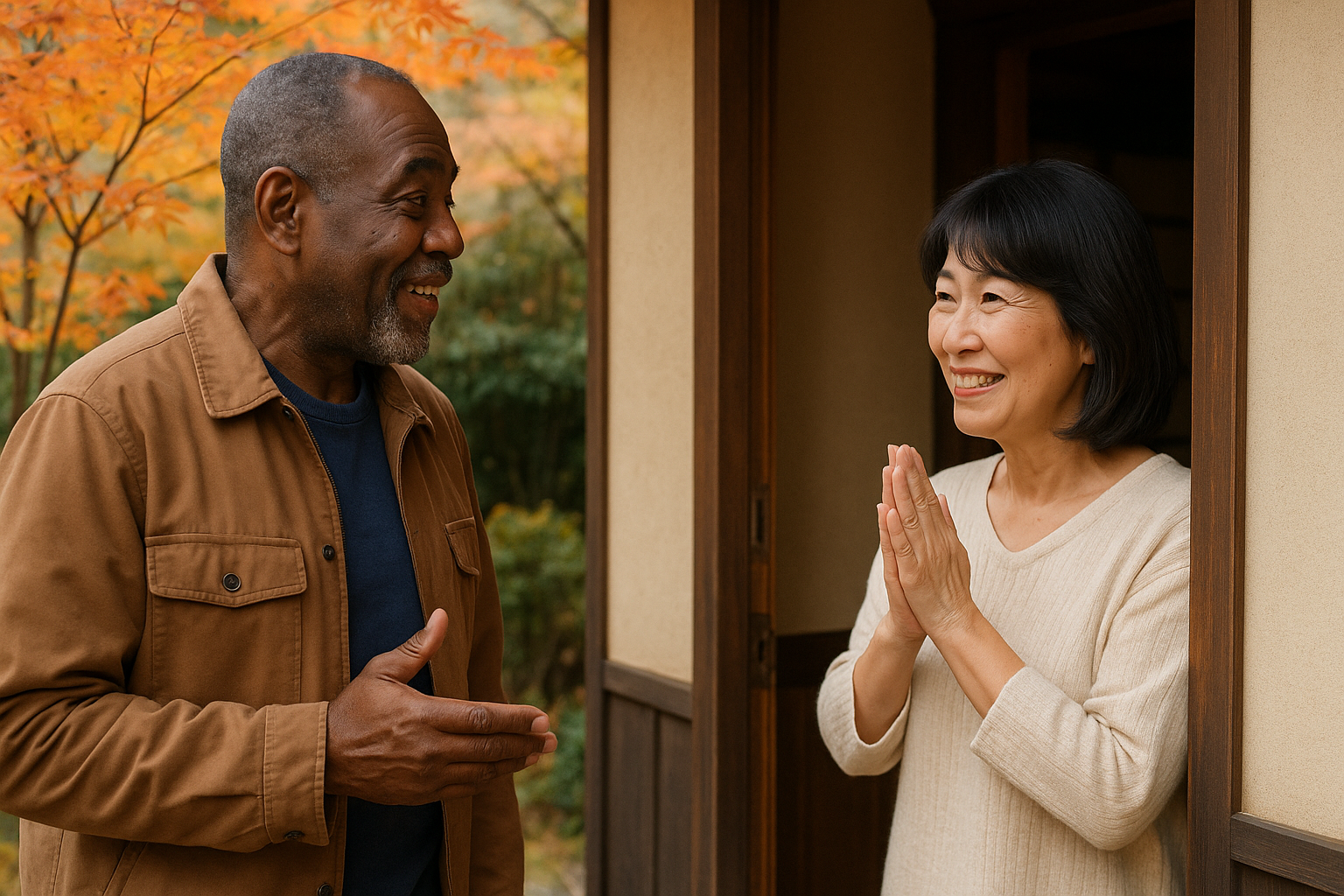Index
A Daily Dialogue of Connection
In Japanese homes, there’s a beautiful call-and-response ritual that happens every day—when someone returns home, they say “Tadaima” (ただいま), which means “I’m home.” The person already at home replies with “Okaeri” (おかえり), or more formally “Okaerinasai” (おかえりなさい), meaning “Welcome back.”
This exchange may seem simple, but it carries a deep sense of care, presence, and belonging. It’s not just a greeting—it’s a recognition of someone’s safe return and a moment of shared warmth.
Cultural Background
In Japan, the home is seen as a sacred, safe space—a place of rest, family, and emotional recharge. Saying “Tadaima” reaffirms that the person has returned from the outside world to their place of comfort. The reply “Okaeri” acknowledges their return and welcomes them with affection.
Unlike in many Western cultures where such expressions are not standardized, this verbal exchange is deeply ingrained in daily life in Japan. It emphasizes community and interdependence, values that are core to Japanese society.
How It’s Used
Here’s how it sounds in a typical household:
Person coming home:
Tadaima! (I’m home!)Person at home:
Okaeri! (Welcome back!)
It’s a brief moment, but it often carries a feeling of relief and happiness—especially after a long day. Children shout it as they kick off their shoes, parents say it as they return from work, and even couples use it when they reunite at the end of the day.
Cultural Comparison
In English-speaking countries, you might hear:
- “I’m back!”
- “Hey, I’m home!”
- “Welcome home!”
But there’s no fixed phrase or expected response like in Japanese. That’s what makes “Tadaima” and “Okaeri” feel so special—it’s a two-part greeting that requires emotional participation from both sides.
Why It Matters
These phrases are small but powerful. They reinforce relationships, signal that someone noticed your absence, and show that your return matters. For people living in Japan or learning the language, embracing this exchange offers a deep insight into the culture’s emphasis on care and harmony.
Conclusion
Next time you step into a Japanese home—or even just watch a Japanese drama or anime—listen for “Tadaima” and “Okaeri.” You’ll notice how often they’re said, and how much love and familiarity they carry in just a few syllables.
P.S.
In Japanese culture, it is commonplace to say “Tadaima” ,“Okaeri”. Conversely, some people who live alone even feel lonely not hearing them.
I’m actually embarrassed to admit that I’ve had that experience too XD.
So many times I have said “Tadaima” to my hedgehog or Alexa XD.
I hope you will try saying it too!
またね(Matane)!



コメント